Last week, we held our Spring Planting celebration, announcing a $700K USDA grant to fund our Young Farmer Training Program. What else has been happening on the IFFS farm this Spring? Plenty! Sunday, April 1st, was the IFFS Spring Fling: A Farm Festival for the Whole Family, and the beautiful weather made the day perfect for celebrating springtime, indeed! There were lots of kids’ activities! Kids could decorate a clay pot in which to grow their own garden and take the plant home with them. There was also natural egg dying, an egg hunt, face-painting, games (like pin the tail on the rooster), and more!
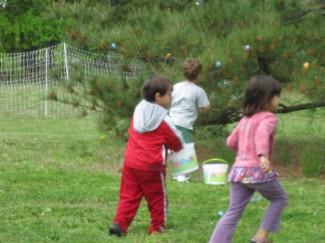
We were very excited to enjoy a demo and lesson from Arthur Gordon, Chef Emeritus and Owner of the Irregardless Café in Raleigh, which focuses on fresh, seasonal meals! The vegan wild tofu reubens he made were delicious - what a great way to use fresh cabbage from the garden!
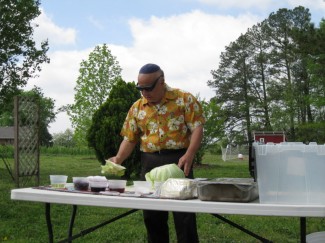

For dessert, we had Vanilla Ice Cream from NC State University – made right on their campus with fresh milk and cream from their cows!
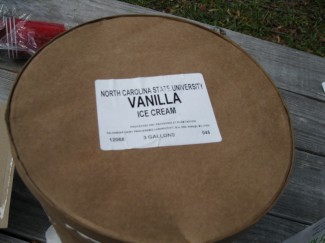
Kids and adults alike enjoyed the farm tour led by Young Farmer Training Program Apprectice Hunter and IFFS Farm Educator Sun Butler! Participants got to know the IFFS chickens, goats, bees, vermicomposting worms, and baby chicks!
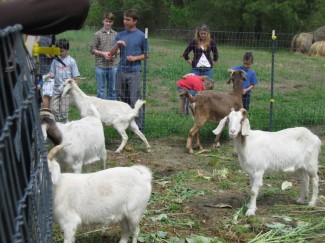
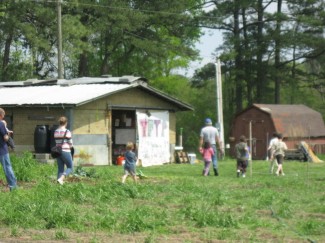
Along the way, those on the tour even got to witness a very special event – a bee swarm! Farm Educator Sun Butler was explaining the apiculture (bee-keeping) operations on the farm, when a great buzzing was heard, and the swarm emerged from the hive! This happens when the queen bee leaves the nest with a large group of drones to mate and form a new colony.
A Food Matters demonstration showing some easy, farm healthy recipes to make with veggies and herbs from the garden piqued our taste buds for warmer weather foods! Ginger, IFFS Nutrition Health Fair Intern, demonstrated how to make a classic tabouli salad, a black bean salsa, and a Greek-style cucumber and yogurt dip with dill. Yum!

The day of festivities also included a composting demonstration! Participants dissected the compost pile, observed the pile "cooking itself" at 150 degrees, and visited with the composting worms in our new wormhouse. Participants also learned how soil biology makes nutrients available to the plants when organic matter is added to the soil in the form of compost or cover crops.
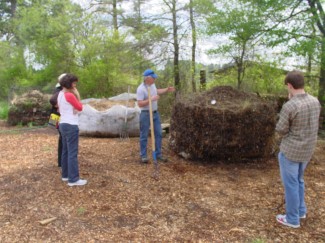
Slideshow of photos:















